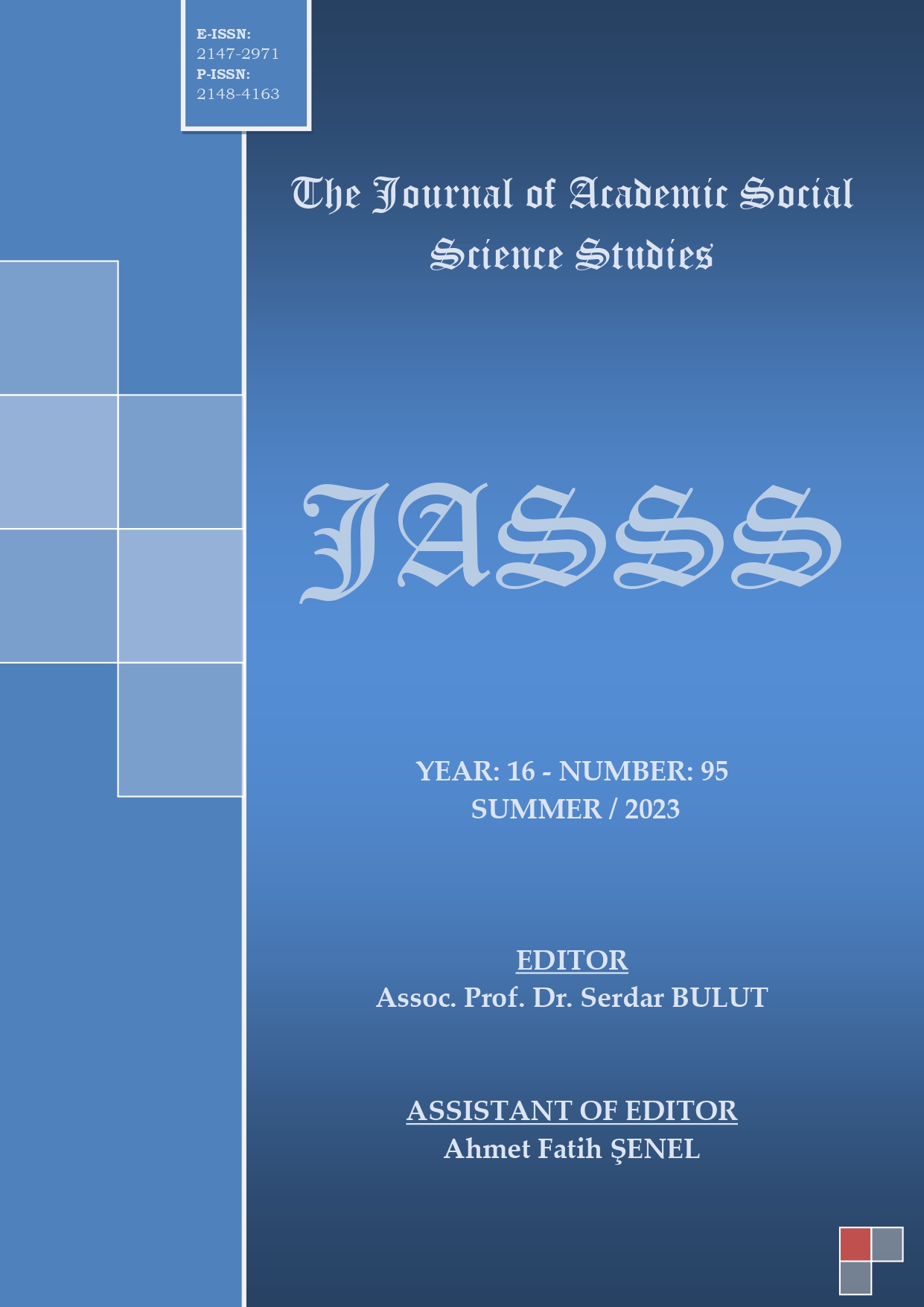Author :
Abstract
Geçmişten günümüze teknolojik gelişmelere bağlı olarak iletişim, haberleşme, ulaşım, tıp, mimari vb. alanlarda insanlık tarihinin en gelişmiş çağının yaşandığını söylemek mümkündür. Bu gelişmişliğin en somut örneklerden birisi olarak mobil cihazlar gösterilebilir. Mobil cihazlar, kullanım olanaklarındaki çeşitlilik ve taşınma kolaylığı gibi nedenlerle günümüz insanının hayatında önemini giderek arttırmaktadır. Buna bağlı olarak sosyal, kültürel ve ekonomik alanlarda güçlü bir şekilde karşılığının bulunduğunu kabul edebileceğimiz mobil cihazların dini yaşantıda da bireylerin tutum ve alışkanlıkları üzerinde önemli bir belirleyici haline geldiği ifade edilebilir. Bu bağlamda mobil uygulamaların dini hayat üzerindeki etki potansiyelini çok yönlü olarak belirleme amacı taşıyan çalışmamızda nicel araştırma metotlarından tarama modeli kullanılmıştır. Çalışmanın verileri konuyla ilgili geliştirilen ve “mobil dindarlık” olarak adlandırılan anketle elde edilmiş, elde edilen bulgular betimlenmiştir. Elde edilen bulgulara göre kullanıcılar en çok “Namaz-Ezan Vakti” ve “Kur’an” uygulamalarını tercih etmektedirler. Ayrıca dini mobil uygulama kullanım tercihinde en fazla” “Kur’an okuma ve meal olma”, “aklımıza takılan dini sorulara cevap verme” ve “ibadet vakitlerini haber verme” özelliklerinin arandığı tespit edilmiştir. Dini mobil uygulama kullanımının dini hayatı kolaylaştırdığı, ibadetlerin sistematik bir şekilde yerine getirilmesine yardımcı olduğu ve dini hayatı olumlu yönde etkilediği sonuçlarına ulaşılmıştır. Aynı zamanda katılımcıların dini mobil uygulama üzerinden okunan Kur’an’ın kutsallık değerinde azalma olacağı yönündeki düşünceyi, dini mobil uygulamaların insanları dini hayatı yaşama yönünden tembelleştirdiği ve ibadet ruhuna aykırı olduğu yönündeki düşünceleri desteklemedikleri belirlenmiştir.
Keywords
Abstract
Depending on the technological developments from past to present, it is possible to say that the most advanced age of human history has been experienced in the fields of contact, communication, transportation, medicine, architecture, etc. Mobile devices can be shown as one of the most concrete examples of this development. Mobile devices are becoming increasingly important in the lives of today's people due to the variety of usage possibilities and ease of transport. Accordingly, it can be stated that mobile devices, which we can accept that they have a strong response in social, cultural and economic fields, have become an important determinant on the attitudes and habits of individuals in religious life. In this context, in our study, which aims to determine the impact potential of mobile applications on religious life in a multidimensional way, the survey model, one of the quantitative research methods, was used. The data of the study were obtained through a questionnaire developed on the subject and named as "mobile religiosity", and the findings obtained were described. According to the findings, users mostly prefer "Prayer-Ezan Vakti" and "Holy Quran" applications. In addition, it was determined that the most sought features in the preference for using religious mobile applications are "reading the Qur'an and being a meaning", "answering religious questions we have in mind" and "informing the times of worship". It was concluded that the use of religious mobile applications facilitates religious life, helps to fulfil worship in a systematic way and positively affects religious life. At the same time, it was determined that the participants did not support the idea that there would be a decrease in the sacredness value of the Qur'an read through religious mobile applications, that religious mobile applications make people lazy in terms of living religious life and that they are contrary to the spirit of worship.





